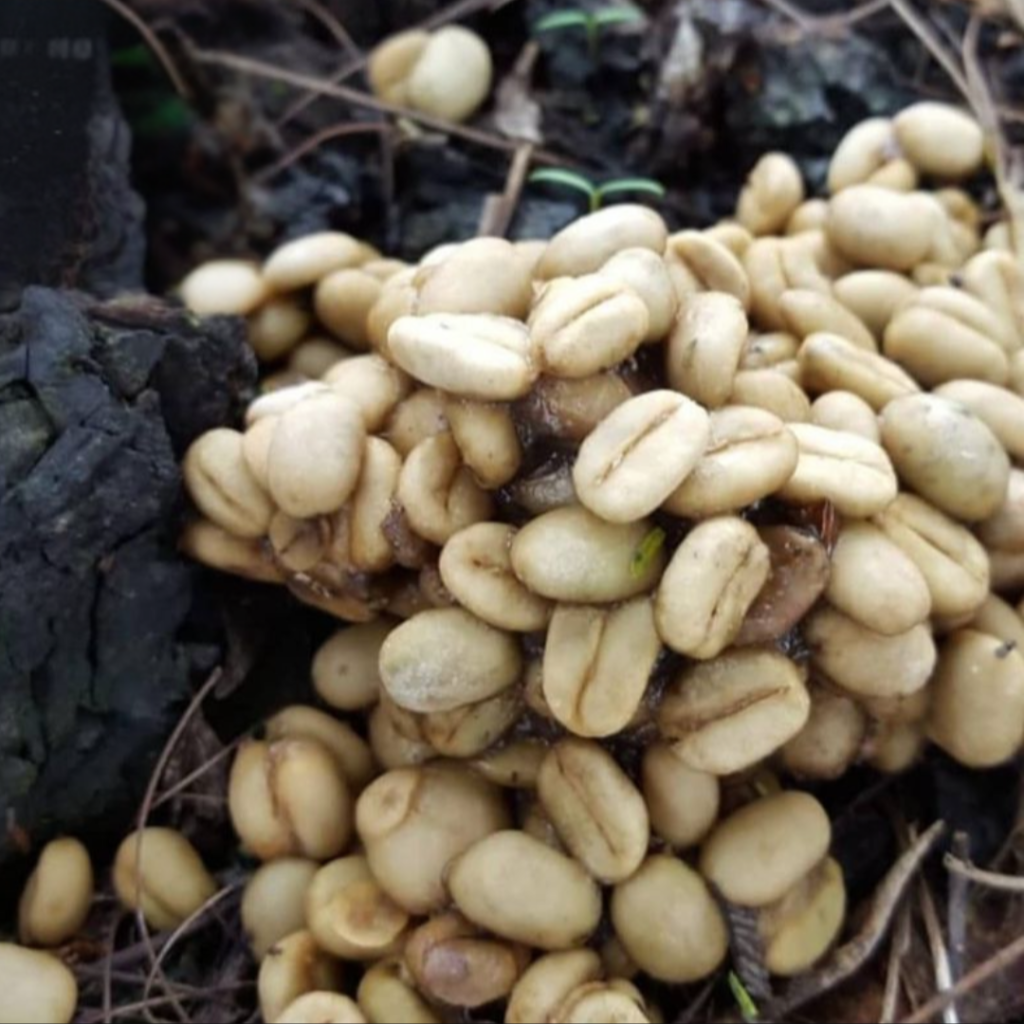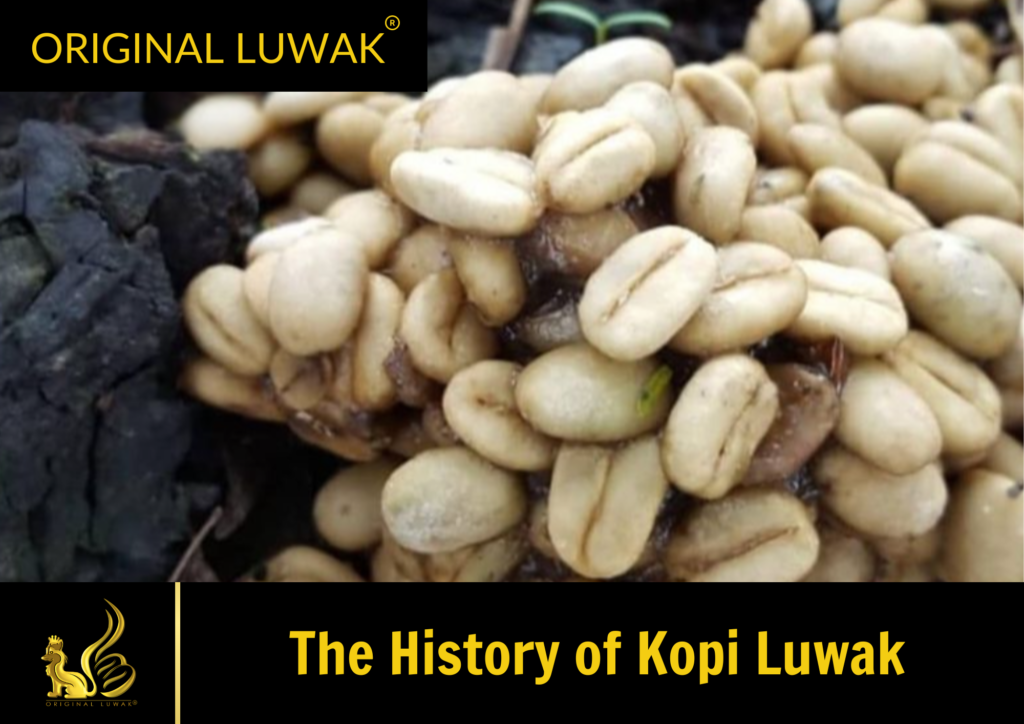1. The Arrival of Coffee in Indonesia
The history of Kopi Luwak also known as Luwak Coffee, starts with the arrival of coffee in Indonesia in the early 18th century. The Dutch colonial powers, eager to tap into the lucrative coffee trade, established vast plantations across their colonies, particularly on the islands of Java and Sumatra. They introduced Coffea arabica seeds from Yemen, which thrived in the rich volcanic soil of these islands, leading to the establishment of a robust coffee cultivation industry.
As coffee plants flourished, the beverage quickly gained popularity in Europe, creating a high demand for Indonesian coffee. However, the local population faced restrictions under the Cultuurstelsel, a system that forced them to grow cash crops for export while prohibiting them from consuming the coffee they harvested. This ban only fueled the curiosity of the locals, who were eager to experience the rich flavors of the coffee that was becoming a staple in European society.
The combination of fertile land, colonial ambition, and local ingenuity set the stage for a remarkable discovery that would change the coffee landscape forever.
2. The Cultuurstelsel and Local Innovation
The Problem
As the Dutch enforced the Cultuurstelsel, which lasted from 1830 to 1870, local farmers found themselves in a peculiar situation. They were required to cultivate coffee and other cash crops for the benefit of the colonial economy, yet they were denied the simple pleasure of enjoying the coffee they grew. This restriction sparked a wave of creativity among the local workers, who were determined to find a way to taste the coffee that was so integral to their livelihoods.
They found a solution
In their quest for a solution, workers began to observe the behavior of the luwak, a small civet-like animal native to the region. They noticed that the luwak had a particular fondness for ripe coffee cherries, selectively eating only the best and most mature fruits. The luwak’s unique digestive system allowed it to digest the fruit while leaving the hard coffee beans intact. This observation led to a groundbreaking realization: the beans that passed through the luwak’s digestive tract could be collected, cleaned, and transformed into coffee.
This innovative approach not only provided a way for local workers to enjoy coffee but also introduced a new method of processing that would eventually become known as Luwak Coffee. The beans, having undergone a natural fermentation process in the luwak’s stomach, were believed to possess a distinct flavor profile, setting them apart from traditionally processed coffee.
The ingenuity of the local farmers and their relationship with the luwak marked the beginning of a unique coffee tradition that would capture the attention of coffee lovers around the world.
3. The Discovery of Luwak Coffee
The discovery of Luwak Coffee was a serendipitous blend of necessity and nature. As local workers began to collect the undigested coffee beans found in the droppings of the luwak, they realized they had stumbled upon something special. The process was simple yet fascinating: after gathering the beans, they would wash them thoroughly to remove any impurities, roast them to bring out their flavors, and then brew them into a rich, aromatic coffee.

A Unique Brew from Nature
The fermentation that occurred in the luwak’s digestive system played a crucial role in enhancing the beans’ flavor. This natural process not only altered the chemical composition of the beans but also contributed to a smoother, less acidic taste that many coffee enthusiasts would come to appreciate. The unique flavor profile of Luwak Coffee quickly became a topic of conversation among those who had the opportunity to try it.
As word spread about this unusual coffee, it piqued the interest of Dutch plantation owners and coffee connoisseurs. They began to recognize the value of these beans, not just for their unique taste but also for the story behind their production. The combination of rarity and the unconventional method of processing made Luwak Coffee a sought-after delicacy, elevating it to a status symbol among the wealthy.
This newfound appreciation for Luwak Coffee marked a significant turning point in its history, as it transitioned from a local curiosity to a luxury item that would eventually capture the attention of the global coffee market.
4. Rise to Popularity and Luxury
As Luwak Coffee gained traction among the Dutch elite, its reputation began to spread beyond the confines of Indonesia. By the 1980s, this unique brew had captured the attention of coffee enthusiasts around the world. The combination of its unusual production method and the rich, smooth flavor profile made it a coveted item among gourmet coffee lovers.
The Allure of Rarity
The rarity of Luwak Coffee played a significant role in its rise to luxury status. With the luwak’s selective eating habits and the labor-intensive process of collecting and processing the beans, the supply was limited. This scarcity, coupled with the fascinating story of its origin, made Luwak Coffee one of the most expensive coffees in the world, with prices reaching up to $100 for just 450 grams.
Coffee shops and specialty retailers began to feature Luwak Coffee prominently, marketing it as an exotic and exclusive experience. It became a must-try for those seeking to indulge in the finer things in life. The allure of sipping a cup of coffee that had been through the digestive system of a luwak intrigued many, and it quickly became a conversation starter among coffee aficionados.
However, this newfound fame also brought challenges. As demand surged, some producers began to prioritize quantity over quality, leading to concerns about the ethical treatment of luwaks and the sustainability of the coffee production process. Despite these issues, Luwak Coffee remained a symbol of luxury and exclusivity, solidifying its place in the global coffee market.
5. Ethical Concerns and Modern Controversies
As Luwak Coffee continued to gain popularity and demand surged, it also became the center of significant ethical concerns and controversies. Investigations into the production practices revealed troubling realities about the treatment of luwaks in captivity. Many producers began to keep these animals in small cages, depriving them of their natural behaviors and habitats in order to maximize coffee production. This led to widespread criticism from animal rights organizations and coffee enthusiasts alike.
The Call for Ethical Sourcing
The growing awareness of these issues prompted a movement towards more ethical sourcing of Luwak Coffee. Consumers began to seek out brands that prioritized animal welfare and sustainable practices. This shift in consumer behavior encouraged some producers to adopt more humane methods, allowing luwaks to roam freely and forage for coffee cherries in their natural environment.
In 2010, the issue gained further attention when Indonesian President Susilo Bambang Yudhoyono gifted Luwak Coffee to Australian Prime Minister Kevin Rudd during a state visit. This gesture highlighted the coffee’s status as a national treasure but also raised questions about the ethical implications of its production, especially regarding quarantine regulations for animal products.
Today, while Luwak Coffee remains a luxury item, the conversation around its production continues to evolve. Many coffee lovers are now more informed about the origins of their coffee and are advocating for transparency and ethical practices in the industry. As a result, the future of Luwak Coffee may depend on the balance between maintaining its unique allure and ensuring the welfare of the luwaks involved in its production.
This journey from a local curiosity to a global phenomenon reflects not only the complexities of coffee culture but also the importance of ethical considerations in the food and beverage industry.

